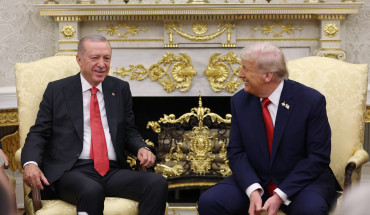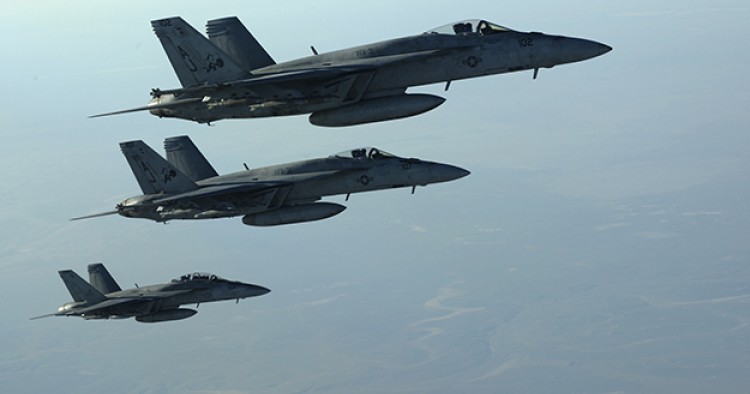This is an excerpt of an article published by The National Interest. For the full article, please click here.
The calls for U.S. military action against Syrian government forces have become more vociferous in recent weeks, as outrage over the current Russian and Syrian military offensive in rebel-held eastern Aleppo mounts. The calls are not new: critics have been urging President Barack Obama to become more involved in the Syrian civil war since it began in 2011, and have since become louder amid glaring human rights abuses.
The last time the Obama administration “considered” striking President Bashar al-Assad’s forces was in August 2013, following global outrage at a chemical attack on rebel-held neighborhoods in eastern Damascus. Disturbing images of the past week of hospitals being reduced to rubble due to Russian and Syrian bombardment have again resulted in elevated calls for intervention. Indeed, Western leaders, including Obama, have mirrored the moral outrage by slamming the Russian-led assault as “barbarous” and possible “war crimes.” But as in August 2013, morality was not a motivation for direct, foreign intervention. The Obama administration refrained from bombing Assad’s forces after the chemical attack in 2013, and will likely remain on the sidelines again.
The sad reality of international relations is that interests trump humanitarianism. The Security Council has deliberated, released statements and resolutions, and watched on as numerous cases of crimes against humanity came before it. Assad is not the first despot to inflict egregious crimes against his own people, and seemingly get away with it. When it serves the interest of a great power, morality is a footnote. And Russia is not the only party to the game—it is the standard conduct of all great powers.
In the late 1970s, the West watched silently when Pol Pot’s Cambodian regime clobbered, hacked, and tortured two million of his own people to death in one of the worst genocides since World War II. In the 1980s, the Khmer Rouge received training at secret camps in neighboring Thailand from British special forces. Despite being one of the most brutal dictators of the twentieth century, Pol Pot served American interests in opposing the Communist regime in Vietnam, which had recently asserted full control over Vietnam after defeating the U.S.-backed South Vietnamese government.
President Obama’s policy of nonintervention in Syria—with the exception of the campaign against ISIS, which deliberately avoids confrontation with the Syrian government and the Russians—is not an anomaly; it follows a script of international relations that determines intervention on the basis of national interest. Morality is not a consideration, and it is unlikely that any American leader—Democrat or Republican—would apply a different formula when deciding on military action. Thus, the question advocates of U.S. military action need to ask and answer is: how is it in America’s national interest to go to war against the Syrian government, and risk direct confrontation with a great power such as Russia?
If it is solely for humanitarian purposes, the United States will abstain every day of the week. It is necessary, thus, to determine what America’s interests are in the Syrian civil war, which remain unclear. Obama’s failure is not in that he has refused to intervene, but that, after five years of war, he has yet to clearly articulate what America’s interests are in this war. The egg cannot hatch before it is laid.
Click here for the full article.
The Middle East Institute (MEI) is an independent, non-partisan, non-for-profit, educational organization. It does not engage in advocacy and its scholars’ opinions are their own. MEI welcomes financial donations, but retains sole editorial control over its work and its publications reflect only the authors’ views. For a listing of MEI donors, please click here.













